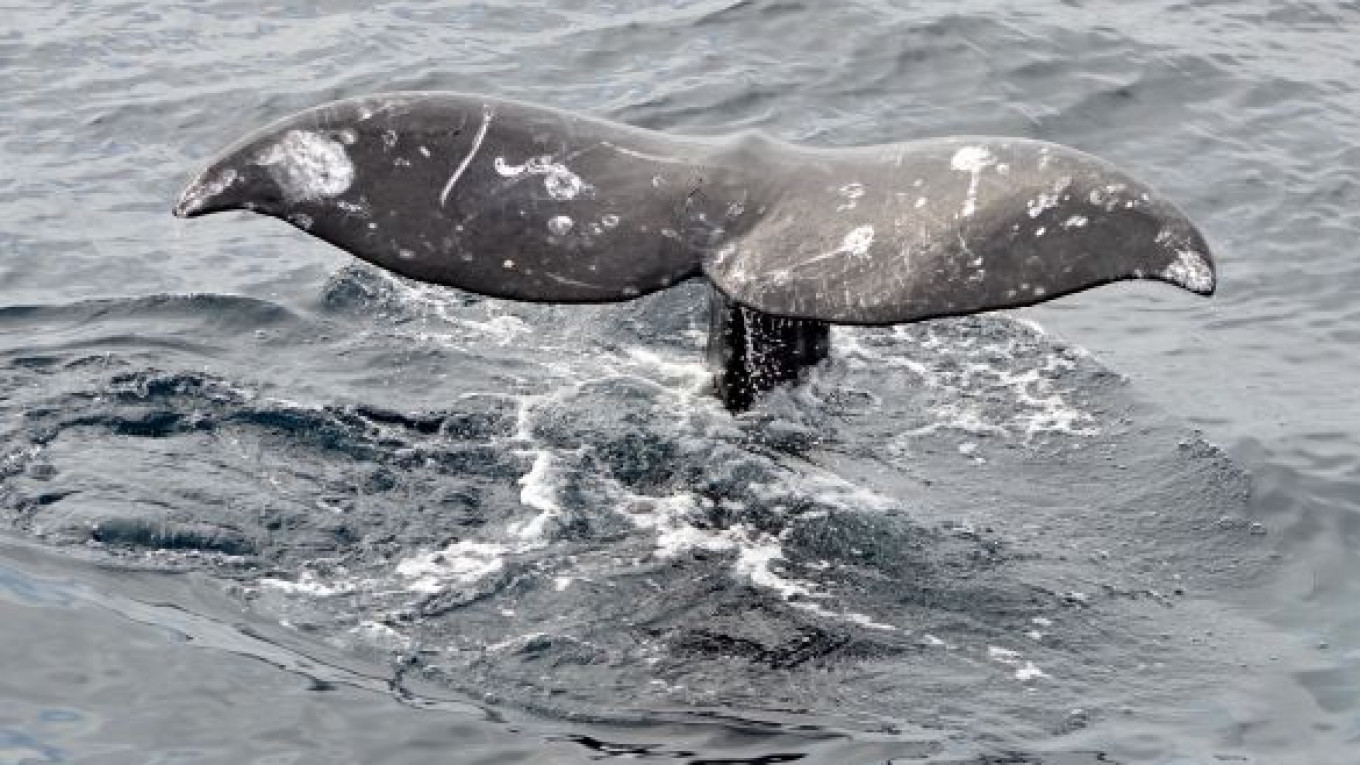OSLO — Safeguards on seismic testing for an oil and gas project in the Pacific have shielded endangered whales from harm and are a model for managing the deafening blasts, the world's largest environmental group said on Monday.
Conservationists who worked with Sakhalin Energy Investment in Russia from 2006 to 2012 said the tiny population of endangered western gray whales had risen about 3 percent a year to 140, despite seismic testing near their feeding grounds.
Seismic testing bounces sound waves into the seabed to seek deposits of oil and gas. It can harm whales and other marine life with blasts of 230 to 250 decibels, so loud that they that can sometimes be detected 4,000 kilometers away.
"This work helps to set a standard," Carl Gustaf Lundin, director of the global marine and polar program at the IUCN, or International Union for Conservation of Nature, said.
"Once you have raised the bar … other companies will look bad if they are not deploying it," he said. The IUCN includes governments, scientists and conservation organizations and is the world's biggest environmental alliance.
He said there was no sign of "significant direct impact on the whales" from the testing off Sakhalin island north of Japan. Sakhalin Energy groups Gazprom, Royal Dutch Shell, Mitsui and Mitsubishi.
A common and worrying effect of seismic testing was that the whales move away from their normal feeding grounds, Doug Nowacek of Duke University, lead author of the findings published in the journal Aquatic Mammals, said.
"The potential exists, if animals get too close [to testing areas], for trauma and injury," he said, adding that to his knowledge no such cases have been documented.
Spring Seismic
The IUCN said the guidelines called for thorough advance study of wildlife to help decide when it was best to carry out seismic tests, limiting noise levels, halting surveys if animals were seen in the area and follow-up monitoring.
"This is a comprehensive guidebook for how to do this with minimal impact," said Nowacek.
Off Sakhalin, for instance, understanding whale migrations meant it was best to do seismic testing in spring, after ice had melted but before many whales had returned to the region.
Whale sightings also varied a lot from year to year.
"A clear message is that it is not enough to send out a few people for a week or two in a boat and then decide how many whales there are," said Greg Donovan, who chairs an IUCN group looking into the problem of the whales and seismic surveys.
More stringent guidelines would tend to push up costs of environmental monitoring, especially if it meant million-dollar delays to drilling. On the other hand, harming wildlife could damage companies' reputations.
Whales are especially vulnerable to seismic testing.
"Whales rely on sound for communication, navigation and foraging," an IUCN statement said. "Exposure to loud noise from seismic surveys can result in stress and behavior changes, affect foraging and nursing, or cause direct physical damage."
A Message from The Moscow Times:
Dear readers,
We are facing unprecedented challenges. Russia's Prosecutor General's Office has designated The Moscow Times as an "undesirable" organization, criminalizing our work and putting our staff at risk of prosecution. This follows our earlier unjust labeling as a "foreign agent."
These actions are direct attempts to silence independent journalism in Russia. The authorities claim our work "discredits the decisions of the Russian leadership." We see things differently: we strive to provide accurate, unbiased reporting on Russia.
We, the journalists of The Moscow Times, refuse to be silenced. But to continue our work, we need your help.
Your support, no matter how small, makes a world of difference. If you can, please support us monthly starting from just $2. It's quick to set up, and every contribution makes a significant impact.
By supporting The Moscow Times, you're defending open, independent journalism in the face of repression. Thank you for standing with us.
Remind me later.






